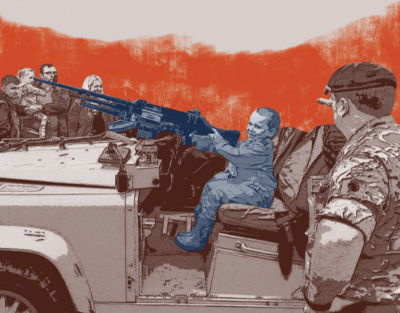More media coverage of our petition to the Scottish Parliament
various
The Herald, 20 November 2016
SCOTLAND’S children and young people’s commissioner has said young people from deprived backgrounds should not be targeted by the military for recruitment and that visits by the Armed Forces to schools should be more tightly regulated, as MSPs prepare to consider proposed restrictions.
Tam Baillie also called for an outright ban on the recruitment of under 18s to the military, something which under existing Ministry of Defence (MoD) rules can only take place with parental consent and away from school grounds.
The MoD claims that military representatives only go into schools to give presentations, citizenship talks, hold meetings with staff, participate in career events, practice interviews and hold activities with the students, such as science and maths challenges, as well as indoor or outdoor exercises.
Holyrood’s public petitions committee could make a decision this Thursday on taking forward a proposal from military recruitment watchdog Forces Watch and Quakers in Scotland that would to see the Armed Forces subjected to more scrutiny when entering classrooms.
The moves began following a Sunday Herald investigation early this year which revealed Tory plans to create military cadet units in state schools in Scotland’s most deprived areas. The idea was attacked by a senior SNP source as an attempt to recruit vulnerable children as British Army ‘cannon fodder’.
Forces Watch and Quakers in Scotland have launched a joint petition at Holyrood, which also calls for children to be given a balanced view of what a military career entails.
Quakers in Scotland and Forces Watch have sought guidance on how school visits should be conducted to ensure “political balance and offer a realistic representation of the role of the armed forces and what a career in the armed forces involves”.
However, in a written submission to the committee meeting ahead of its meeting Thursday, Tam Baillie, echoed the concerns, calling for “clear national guidance about the content of such visits” and when and where they should taken place.”
SNP and Green MSPs condemn British military for recruitment of “vulnerable” youths
Common Space, 22 November 2016
OVER TWENTY MSPs from the SNP and Scottish Greens have condemned the UK military for targeting young people in its recruitment.
The parliamentary motion, proposed by the SNP’s Christina McKelvie, highlights fresh evidence from health experts Medact that called for a rise in the military recruitment age.
The Scottish Parliament petitions committee is set to hear further evidence this week on military recruitment in the country’s schools.
Campaigners compiled military data which revealed a “disproportionate” 1783 visits to 377 Scottish education institutions across a two year period, with at least a third of visits including careers advice.
Currently, teenagers can apply to join the UK military from as young as 15 years and seven months old, and enlist from the age of 16.
22 MSPs have signed a motion stating they are “dismayed” at the military recruitment practices, given evidence of health “vulnerabilities” from early military recruitment.
The motion reads: “That the parliament acknowledges the recent report from the health charity, Medact, on the recruitment of under 18s into the British armed forces; notes that the main findings of the report state that child recruits are more vulnerable to post-traumatic stress disorder (PTSD), alcohol abuse, self-harm, suicide, death and injury during an armed forces career when compared with adult recruits”.
The motion adds that the MSPs “considers that military recruitment marketing takes advantage of adolescent cognitive and psychosocial vulnerabilities among under 18s; further considers that the current practices for recruiting children into the armed forces do not meet the criteria for full and informed consent; believes that those recruited as children, upon turning 18, are more likely than adult recruits to end up in frontline combat roles, which carry greater risks than other roles.”
“The recent report from Medact has added to the already large bank of evidence that younger recruits to the military face disproportionate risks, including a higher risk of death, injury and mental health issues”. SNP Youth
See more: military in schools/colleges, recruitment, recruitment age, ForcesWatch, Quakers, Scotland, Scottish Parliament, education, parliamentary motion









